Top Rankings
Lewiston School District ranks among the top 20% of public school district in Maine for:
Category
Attribute
Diversity
Most diverse schools (Top 1%)
Community Size
Largest student body (number of students) (Top 1%)
For the 2025 school year, there is 1 public middle school serving 716 students in Lewiston School District. This district's average middle testing ranking is 1/10, which is in the bottom 50% of public middle schools in Maine.
Public Middle School in Lewiston School District have an average math proficiency score of 62% (versus the Maine public middle school average of 82%), and reading proficiency score of 69% (versus the 85% statewide average).
Minority enrollment is 55% of the student body (majority Black), which is more than the Maine public middle school average of 13% (majority Black and Hispanic).
Overview
This School District
This State (ME)
# Schools
8 Schools
205 Schools
# Students
5,142 Students
54,742 Students
# Teachers
474 Teachers
5,171 Teachers
Student : Teacher Ratio
11:1
11:1
District Rank
Lewiston School District, which is ranked within the bottom 50% of all 191 school districts in Maine (based off of combined math and reading proficiency testing data) for the 2021-2022 school year.
The school district's graduation rate of 67% has decreased from 76% over five school years.
Overall District Rank
#203 out of 222 school districts
(Bottom 50%)
(Bottom 50%)
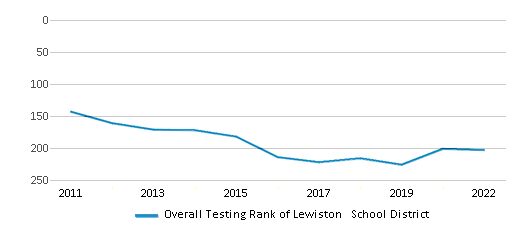
Math Test Scores (% Proficient)
55%
82%
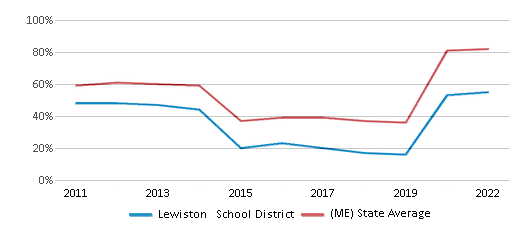
Reading/Language Arts Test Scores (% Proficient)
62%
84%
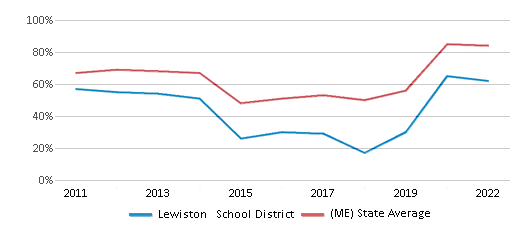
Science Test Scores (% Proficient)
14%
37%
Graduation Rate
67%
86%
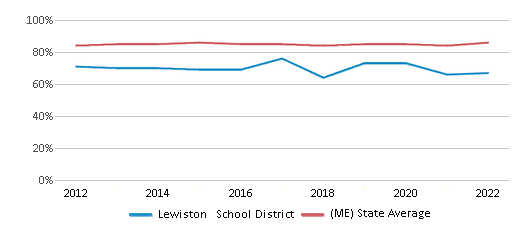
Students by Ethnicity:
Diversity Score
0.61
0.24
# American Indian Students
9 Students
675 Students
% American Indian Students
n/a
1%
# Asian Students
64 Students
618 Students
% Asian Students
1%
1%
# Hispanic Students
213 Students
1,735 Students
% Hispanic Students
4%
3%
# Black Students
2,156 Students
1,973 Students
% Black Students
42%
4%
# White Students
2,358 Students
47,794 Students
% White Students
46%
87%
# Hawaiian Students
7 Students
42 Students
% Hawaiian Students
n/a
n/a
# Two or more races Students
335 Students
1,905 Students
% of Two or more races Students
7%
4%
Students by Grade:
# Students in PK Grade:
227
887
# Students in K Grade:
355
1,595
# Students in 1st Grade:
361
1,641
# Students in 2nd Grade:
368
1,729
# Students in 3rd Grade:
376
1,772
# Students in 4th Grade:
374
1,949
# Students in 5th Grade:
355
4,404
# Students in 6th Grade:
365
10,295
# Students in 7th Grade:
354
12,554
# Students in 8th Grade:
362
12,727
# Students in 9th Grade:
391
1,281
# Students in 10th Grade:
403
1,292
# Students in 11th Grade:
406
1,376
# Students in 12th Grade:
445
1,240
# Ungraded Students:
-
-
District Revenue and Spending
The revenue/student of $21,760 is higher than the state median of $21,600. The school district revenue/student has stayed relatively flat over four school years.
The school district's spending/student of $19,559 is less than the state median of $21,191. The school district spending/student has stayed relatively flat over four school years.
Total Revenue
$112 MM
$3,617 MM
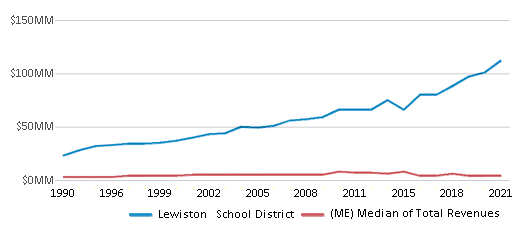
Spending
$101 MM
$3,549 MM
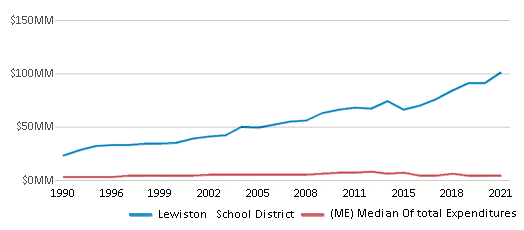
Revenue / Student
$21,760
$21,600
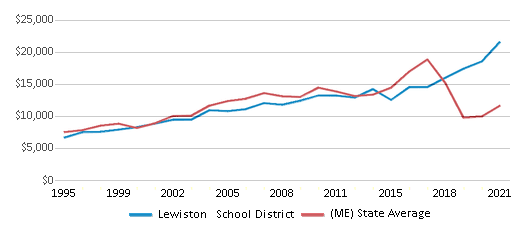
Spending / Student
$19,559
$21,191
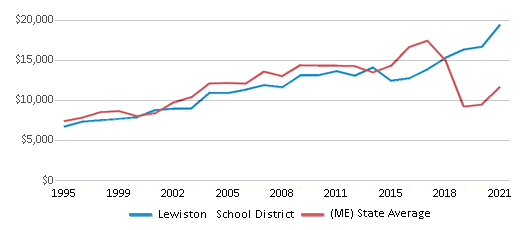
Best Lewiston School District Public Middle Schools (2025)
School
(Math and Reading Proficiency)
(Math and Reading Proficiency)
Location
Grades
Students
Rank: #11.
Lewiston Middle School
(Math: 62% | Reading: 69%)
Rank:
Rank:
1/
Bottom 50%10
75 Central Avenue
Lewiston, ME 04240
(207) 795-4180
Lewiston, ME 04240
(207) 795-4180
Grades: 7-8
| 716 students
Recent Articles

Sexual Harassment at Age 6: The Tale of a First Grade Suspension
A six-year old in Aurora, Colorado, was suspended after singing an LMFAO song to a little girl in his class and reportedly “shaking his booty.” We look at the case and the sexual harassment problem in public schools today.

How Scaffolding Could Change the Way Your Child Learns
This article explores the concept of instructional scaffolding, a teaching method that enhances learning by breaking down complex tasks into manageable parts. It highlights how scaffolding supports students in developing critical thinking skills and becoming more independent learners. The article discusses the benefits of scaffolding, including improved engagement and reduced anxiety, and provides strategies for its implementation across various educational levels.

February 05, 2025
Understanding the U.S. Department of Education: Structure, Impact, and EvolutionWe explore how the Department of Education shapes American education, from its cabinet-level leadership to its impact on millions of students, written for general audiences seeking clarity on this vital institution.





